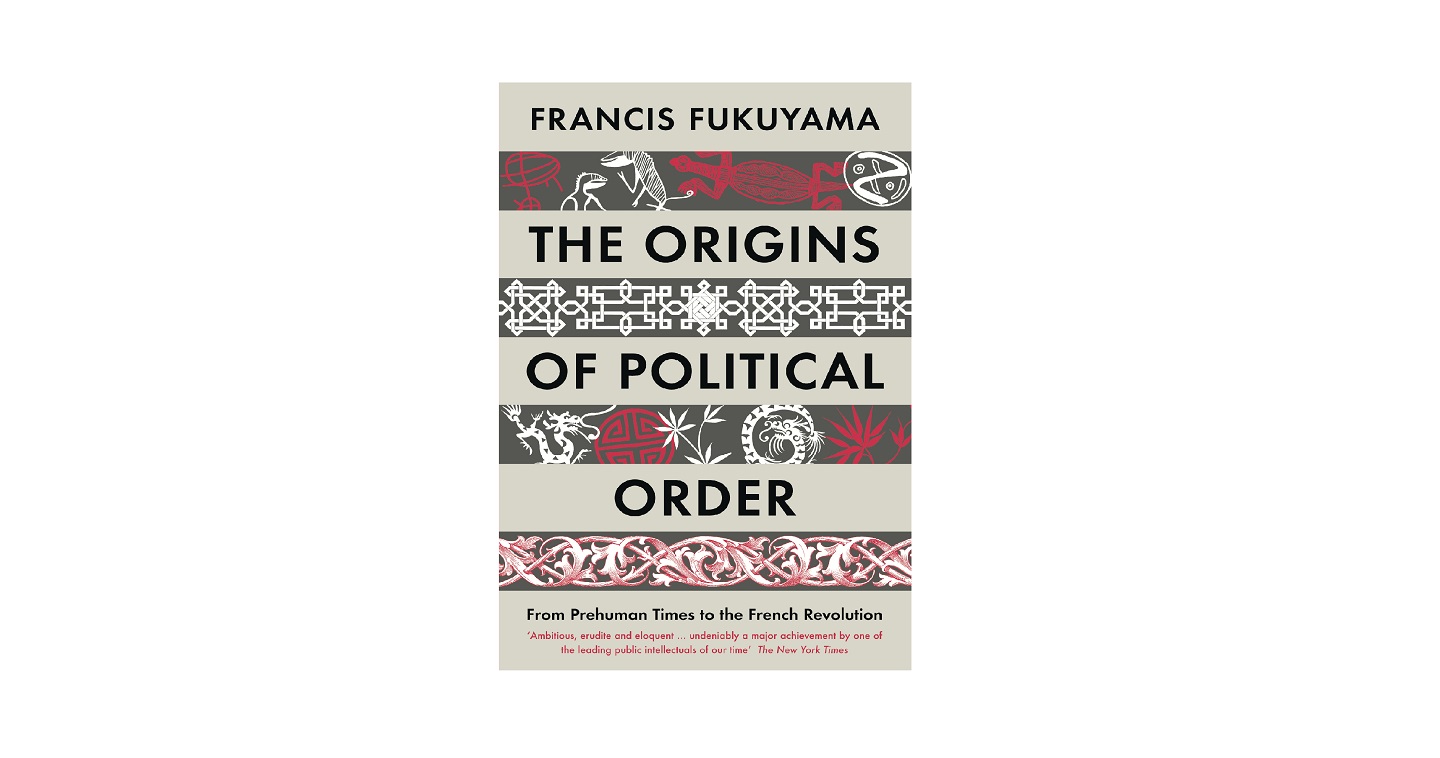
Fukuyama's political publication is a sweeping history of how human society functions (Photo: Kinokuniya)
Political scientist and historian Francis Fukuyama shot to prominence in 1989 for his influential essay The End of History? It announced that the great ideological battles between east and west were over and that western liberal democracy had triumphed. With anti-communist protests sweeping across the former Soviet Union, the essay seemed right. Liberal democratic practices, as they exist in the West, represent the end state of political evolution and global standard for governance.
Over the next 25 years, Fukuyama’s ideas were tested by real events, and fell seemingly short. The failure of the US to “democratise” Iraq and Afghanistan showed the limits of trying to transplant Western-style institutions. It also seemed fanciful to think that modern societies had progressed beyond traditional tribal social systems. The Big Men of Melanesia, that is politicians who distribute resources to their relatives and supporters, abound in the contemporary world.
What was missing in the original analysis?
Fukuyama returned to the topic with a humbler, broader and more satisfying model of reality in two books. The Origins of Political Order: From Prehuman Times to the French Revolution (2011) is a sweeping history of how human society functions and why they evolved to operate in the variety of ways around the world.
“Politics is downstream from culture” and each society will tread its own path. But not all paths are sustainable. And herein lies Fukuyama’s key insight that a modern political system requires a strong state, the rule of law and democratic accountability. These are the three basic pillars of a successful and sustainable liberal democracy. The strong state is there to govern efficiently day to day. The rule of law establishes fairness as no one, not even a president, is exempt. Accountability checks excesses as a bad ruler can, periodically, be thrown out by the people.

Rule of Law at Stanford University (Photo: Stanford University)
The book traces the evolution of these mechanisms around the world from as far back in recorded history as we can go and what he offers is a nuanced story of how different pieces of the puzzle emerge in different parts of the world.
For example, the idea of a strong central state with an impersonal bureaucracy and civil service examinations first emerged in China two thousand years ago. The idea of a rule of law, as in a body of legal thinking that applies to rulers, just as it does to the ruled, did not emerge in China — a lack that still shows today. But it did emerge in India. And Europe was the first place where all three mechanisms came together for the first time: a rule of law, accountability, and a strong state.
He notes how these three building blocks slowly develop, and how somewhere around the 18th century, in Western Europe, the elements first began coming together in a way that we would recognise today as a modern, liberal democratic state. The first volume deals with that whole story until about 1800. The second volume Political Order and Political Decay: From the Industrial Revolution to the Globalisation of Democracy (2014) deals with the story from 1800 to today.
It is the balance between a strong state and a strong society that makes democracy work.
The contribution of the US to the evolution of governance is what Fukuyama calls “clientelism”. That form of clientelism was pioneered by Andrew Jackson in the middle of the 19th century, and it has peculiar characteristics. Unlike previous models of patronage where elected leaders guarantee support by handing out favours almost at an individual level, clientelism hands out favours to large segments of the population that work for the leader in a democracy.
Fukuyama does not discard the notion of a liberal democracy being the most ideal form of government. Where his books inform 1989’s youthful declaration is in recognising that certain material and social preconditions have to be in place before democracy can take root. That is, a successful liberal democracy requires both a state that is strong , unified and able to enforce laws on its own territory and a society that is strong and cohesive and able to impose accountability on the state. It is the balance between a strong state and a strong society that makes democracy work.
What comes next? Fukuyama concludes with several questions about the future. The first concerns China. Western expectations of greater openness has so far failed to play out. China is today growing rapidly with only a strong state in place. Is this situation sustainable in the long run? Can China continue to grow economically and main political stability without either rule of law or accountability?
The second question concerns the future of liberal democracies. A society that is successful at one historical moment will not necessarily always remain successful. The dominant failing of modern democracies in the 21st century is state weakness and gridlock. Democratic India finds it extremely difficult to fix its crumbling infrastructure — roads, airports, water and sewage systems, and the like — because existing stakeholders are able to use the legal and electoral systems to block action.
Comments by reviewer:
Democracy is populism, not necessarily right or better. Yet, societies need to have the right values, attitudes and consciousness to be better. These usually start as a minority view. Perhaps societies that continue to make progress are those willing to provide space for minority views, able to embrace diversity and remain inclusive over time.
Francis Fukuyama's 'The Origins of Political Order' is available at Kinokuniya for RM65. Buy here.
This article first appeared on Mar 18, 2019 in The Edge Malaysia.


